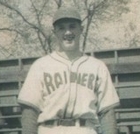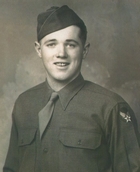Rod Sooter
| Date and Place of Birth: | December 14, 1924 Lynedn, WA |
| Date and Place of Death: | February 1, 1946 Klingbach, Germany |
| Baseball Experience: | Minor League |
| Position: | Pitcher |
| Rank: | Sergeant |
| Military Unit: | Headquarters Squadron, 368th Fighter Group USAAF |
| Area Served: | European Theater of Operations |
The Germans had surrendered. The war in Europe was over, and for Rod Sooter it should have been just a matter of time before he got home and started playing pro ball.
Rodney L. Sooter and his brothers Hugh and Wilburn made up one third
of the Meridian High School baseball team of Laurel, near Bellingham,
Washington, in the early 1940s. Rod was a hard-throwing left-hander who
loved to pitch, and would spend hours hurling baseballs to his brothers.
After wearing them out he would throw against an old car seat laid up
against a chicken coup in the back yard. "I remember watching him from
our kitchen window," said his younger brother Wilburn, who was his
catcher during high school, and went on to pitch in the minors for four
years. "I believe if he had been timed he could throw the ball nearly
100 miles per hour. I could throw a baseball at 96 and Rod was much
faster than me."[1]
Sooter was not academically inclined and quit high school during his
sophomore year in 1942. "Rod wasn't too turned on by school but was
brilliant with his hands and anything mechanical," said Wilburn. "At
about 10 years old, he made a kart by placing a wooden apple box on a
two-by-four frame and fitting an old bed rod that connected to a tie rod
attached to the front wheels to steer it." [2] At the age of 15, and
without instruction, he put new bearings in the family's Model A Ford.
Sooter found work at the Lake Washington shipyard in Seattle, and was
pitching in the local defense league when he was scouted by the Pacific
Coast League's Seattle Rainiers. He signed with the team in November
1942, attended spring training the following year and was released in
May 1943, but not before manager Jack Skiff and coach Syl Johnson had
helped to perfect the youngster's delivery technique. Back with Lake
Washington in 1943, Sooter was soon under the observation of New York
Yankees scout Joe Devine. Military service beat Devine to the punch,
however, although he and Sooter had an agreement that after the war the
left-hander would sign with the Yankees and join the Kansas City Blues
of the International League.
In July 1943, Sooter entered service with the Army Air Force and was
sent to Denver, Colorado, to train as a tail gunner. "He was hurried
overseas without a furlough home," recalled Wilburn. "I never saw him as
a soldier." [3]
Sooter arrived in England in 1944, but was not assigned to combat duty.
Instead, Private First Class Sooter was attached to the 1st Base Air
Depot at Burtonwood in northwest England, and was soon making a name for
himself as a pitcher for the Burtonwood Bearcats on the military
baseball circuit. "Sooter," observed sportswriter Tony Cordaro of the
Stars and Stripes newspaper, "is a dead image of lefty Bob Grove on the
mound when he cocks his pitching arm, kicks his right leg smoothly
towards the sun and then rhythmically unwinds to whip the ball across
the plate with enough speed to crack a brick wall."[4] Sooter had six
victories against one loss for the 1945 season and pitched the Bearcats
to the United Kingdom USSTAF championship with a 4-0 victory over the
988th Military Police Fliers.
In the late summer of 1945, with the war in Europe over, Sooter was sent
to Germany and attached to the 368th Fighter Group in Straubing. During
his time there, while waiting to accumulate enough points to return
home, he had the opportunity to teach the locals about the game. "You
know I love baseball," wrote Sooter in a letter to his hometown
newspaper in 1945, "and after all it might do those German kids lots of
good to play good old American baseball for competition rather than
learn war with guns."[5] One German youngster, who had become attached
to Sooter, later came to the United States, sponsored by a church in
southern Washington, and was visited by Sooter's mother and brother
while he was there.
On the morning of February 1, 1946, Sooter - now a sergeant - took a
flight from Straubing Army Air Base to a ski lodge near Klingbach in the
Bavarian Forest about 25 miles away. The ski lodge was operated under
the direction of the United States Special Services Department and in
addition to taking an aerial look at the facilities, Sooter needed to
deliver a message regarding supplies being sent from the air base.
Piloting the single-engine Piper L-4 Grasshopper light liaison airplane
was Lieutenant John W. Thurman. At 10:30 A.M., the L-4 reduced altitude
in order to drop the message. As it then tried to climb, the engine
stalled. The plane clipped some trees and crashed, bursting into flames.
Sooter struggled to the doorway where he slumped and died. Lieutenant
Thurman was trapped in the cockpit and had to kick his way out of the
plane. Covered with burns, Thurman was hospitalized in Europe, then
transferred to a hospital in Kansas City, Missouri, where Sooter's
mother and brother Wilburn, went to visit. "His condition was so bad
that I had to leave the room or faint," said Wilburn, "but we were able
to talk to him and got the details of the accident." Lieutenant Thurman
died ten months after the accident in December 1946.[6]
Sergeant Sooter was buried at Lorraine American Cemetery in Saint-Avold,
France. Wilburn Sooter will never forget what an outstanding pitcher his
brother was, and often wonders what might have happened if Rod had
survived. "I was used to catching Rod," said Wilburn, "and when I played
my first professional game with the Little Rock Travelers of the
Southern Association in 1946, I was amazed at how the pitcher could get
by playing professional baseball. Rod would have made it big time with
the Yankees." [7]
Hugh Sooter - the youngest of the brothers and a smart pitcher who
struck out 17 batters in a high school game - also went on to play minor
league baseball after military service. He won 22 games with the
Alexandria Aces of the Evangeline League in 1947, and won more than 100
games over eight seasons in the Texas League.
|
Year |
Team |
League |
Class |
G |
IP |
ER |
BB |
SO |
W |
L |
ERA |
| 1943 | Seattle | PCL | AA | Signed but did not play | |||||||
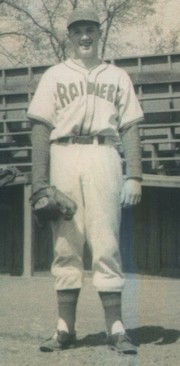
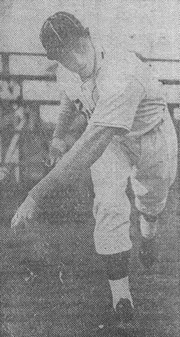
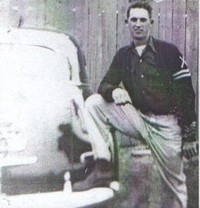
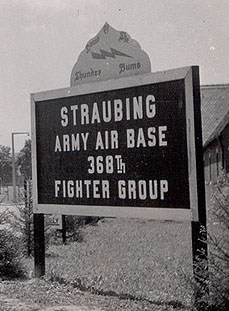
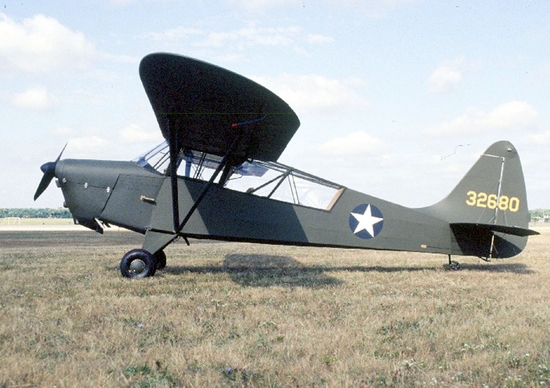
Piper L-4 Grasshopper
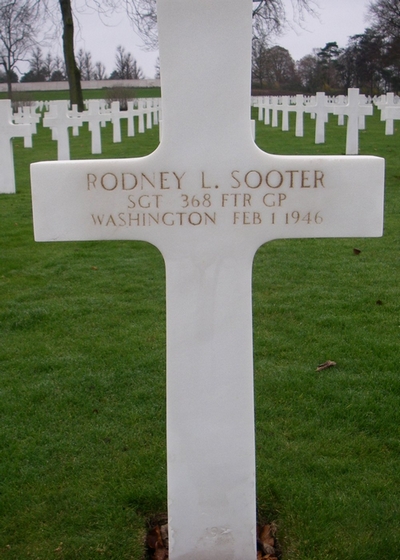
Notes
1. Correspondence with Wilburn Sooter, February 6, 2009
2. Ibid
3. Correspondence with Wilburn Sooter, July 1999
4. Stars and Stripes, date unknown
5. Unidentified press clipping
6. Correspondence with Wilburn Sooter, February 6, 2009
7. Ibid
Thanks to Wilburn L. Sooter for help with this biography.
Date Added March 15, 2012 Updated June 10, 2014
Baseball's Greatest Sacrifice is associated with Baseball Almanac
Baseball's Greatest Sacrifice is proud to be sponsored by

